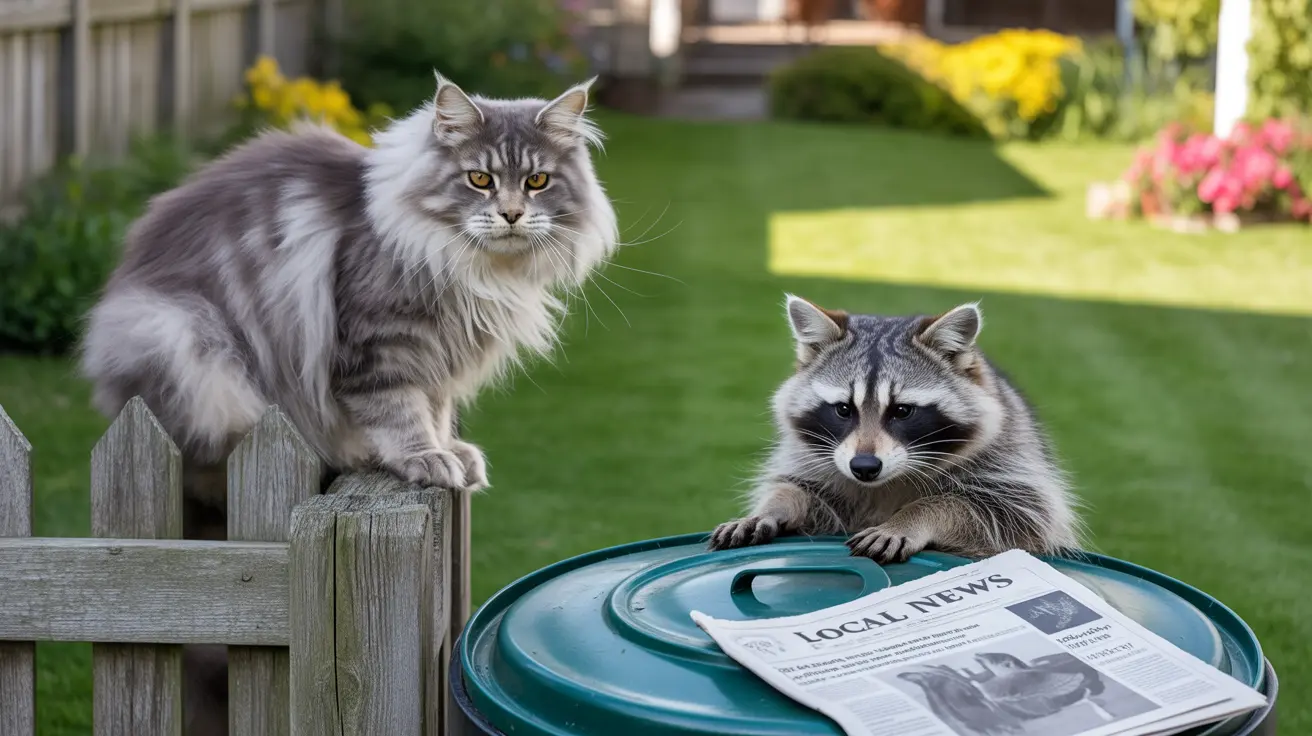Have you ever heard stories about cats breeding with raccoons, especially regarding the mysterious origins of Maine Coon cats? Despite persistent folklore and urban legends, science provides a clear answer to this intriguing question: cats and raccoons cannot breed or produce hybrid offspring.
In this comprehensive guide, we'll explore the scientific evidence behind why these two species cannot interbreed, debunk common myths, and examine the fascinating genetic differences that make such hybridization impossible.
The Genetic Reality: Why Cats and Raccoons Cannot Mate Successfully
While cats (Felis catus) and raccoons (Procyon lotor) may share some superficial similarities, they belong to entirely different families within the order Carnivora. Cats are members of the Felidae family, while raccoons belong to the Procyonidae family.
Though both species have 38 chromosomes, their genetic structures are fundamentally incompatible. The chromosome patterns, DNA sequences, and reproductive mechanisms differ significantly, making successful breeding biologically impossible.
Understanding the Maine Coon Misconception
Maine Coon cats often find themselves at the center of raccoon-hybrid mythology due to their distinctive appearance. Their large size, bushy tails, and water-resistant fur have led many to speculate about possible raccoon ancestry.
However, these physical traits result from natural selection and specific genetic mutations within the feline family. Maine Coons developed their characteristics through selective breeding and adaptation to harsh New England winters, not through hybridization with raccoons.
Physical Interactions Between Cats and Raccoons
In areas where cats and raccoons share territory, they may interact or even display mating behaviors. Male raccoons have occasionally been observed attempting to mate with female cats, particularly when raised in proximity to them.
However, these interactions cannot result in pregnancy or offspring due to fundamental genetic incompatibilities. The species' reproductive systems have evolved separately over millions of years, creating insurmountable biological barriers.
Scientific Evidence and Expert Consensus
Modern genetic research definitively proves that cats and raccoons cannot produce hybrid offspring. DNA analysis shows no significant genetic similarity between the species that would allow for successful breeding.
Veterinary experts and animal geneticists universally agree that reported cases of cat-raccoon hybrids are myths or misidentifications. No scientifically verified case of such a hybrid has ever been documented.
Safe Pet Management and Wildlife Interaction
While cats and raccoons cannot breed, their interactions in the wild or urban environments can pose risks. Both species can carry diseases and parasites that may affect each other, and physical confrontations can result in injury.
Responsible pet owners should discourage contact between domestic cats and wild raccoons, maintaining appropriate boundaries for the safety and health of both animals.
Frequently Asked Questions
Can cats and raccoons actually breed or produce hybrid offspring?
No, cats and raccoons cannot breed or produce hybrid offspring. Despite sharing the same chromosome count, their genetic structures are incompatible, making successful reproduction impossible.
Why do Maine Coon cats look like they might be part raccoon?
Maine Coon cats' resemblance to raccoons is purely coincidental. Their distinctive features, including large size and bushy tails, resulted from selective breeding and natural adaptation to cold climates, not raccoon genetics.
What genetic differences prevent cats and raccoons from mating successfully?
Cats and raccoons belong to different families (Felidae and Procyonidae) with incompatible DNA structures and reproductive systems. Though they have the same chromosome count, their genetic makeup is too different for successful breeding.
Is there any scientific evidence supporting the existence of cat-raccoon hybrids?
No scientific evidence supports the existence of cat-raccoon hybrids. All claims of such hybrids have been disproven through genetic testing and scientific research.
How should I respond if I see a raccoon and cat interacting or mating behavior?
If you observe interactions between cats and raccoons, maintain a safe distance and discourage contact if possible. While mating attempts may occur, they cannot result in offspring and may pose health risks to both animals.
Understanding the scientific impossibility of cat-raccoon breeding helps dispel longstanding myths while highlighting the fascinating uniqueness of each species. Instead of searching for hybrid explanations, we can appreciate the remarkable natural adaptations that make each animal special in its own right.






